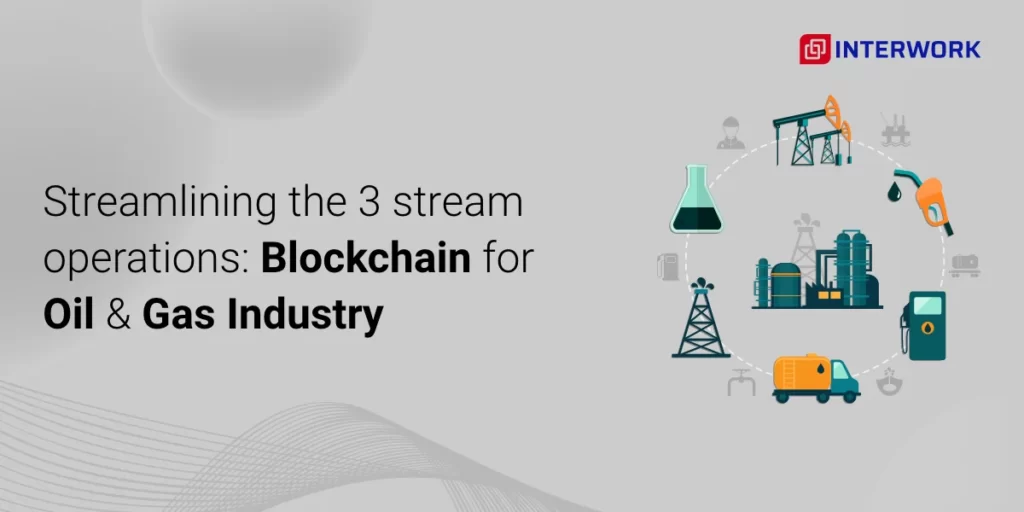How IoT and 5G Are Shaping Automotive Technology
The car manufacturing sector is altering the major trend in…

The Oil & Gas Industry is the backbone of ‘n’ a number of companies, governments, providers and regulatory bodies. There exist endless chances for transparency, optimization, and efficiency. Today’s scenario reflects a whole new picture where proprietary databases and infrastructures do not allow proper coordination. This has a serious impact on performance.
Could Blockchain act as a saviour?
Let’s see some of the real-life applications.
Cheap & Secure Commodity Trading and Tracking
The Oil and Gas industry is a global business. Crude oil is quintessential for the globally-traded economy today. It is a raw source which suffices the world’s energy needs. This includes Gasoline, Petrochemicals, Diesel, etc. The usage of the proprietary system has been increasing to manage, track and record data for performing these trades. The industry makes use of a number of siloed and complicated ledgers to keep track of commodity trading.
These centralized systems are quite complicated and rather expensive to maintain. To add coal to the fire, these systems are manipulative, hackable, and can be corrupted. Commodity trading is always recognized as a razor-thin business, in which optimization of any form is considered to be a lucky star for the companies.
Blockchain technology deploys a decentralized ledger. This is the core concept of technology. Be it tracking or recording transactions of any kind (trading or money transfers), Blockchain offers a solution that is cheaper and more secure. It is known for better efficiency compared to other legacy systems. Nowadays, proprietary systems require a secured, quick and tamper-resistance solution that has to be programmed additionally into the software. Blockchain has this feature inbuilt.
The operations of the Oil and Gas industry can be segregated into 3 categories:
Upstream refers to all the operations that are involved in resource extraction as well as resource exploration.
Midstream comprises those operations that are involved in storing and transporting resources.
Downstream operations are those related to refining that eventually leads to the supply of multiple products to the end-users such as gas stations, domestic users, etc.
The journey of oil drops can include dozens of separate entities such as companies dealing with a lot of legal agreements and documents.
At present, due to manual handling of data, contracts, dispute reconciliation, and inability to track & trace the supply chain among many others result in inefficiencies. The immense amount of oil that goes to waste due to oil spillage or shipwrecks because of mismanagement of resources is another major issue.
Blockchain technology’s ability to track and record all the supply chains can reduce oil wastage through optimum utilization and efficient management of resources. Implementing smart contracts such as those offered by Ethereum could help various parties to manage Oil & Gas production. Let us see how Blockchain can help Upstream, Downstream and Midstream operations.
Blockchain applications for upstream operations are many since they involve multiple stakeholders. The companies performing exploratory drills, and contract companies which supply oilfield and oil rig employees all come under this category. Data management and secure transmission of data are vital reasons for success. The performance-based contracts and reconciliation options are the two key factors affecting the performance of Upstream Oil and Gas processes.
The inefficiency in coordination has been a trouble for many businesses across the world. Labour charges, lengthy processes, and different attestation steps are required for these processes to complete. By joining a Blockchain network, these parties can get the attestation done digitally and securely on the network itself, eliminating physical paperwork and waste of time. The transaction process and the labour details could also be stored and shared using Blockchain.
The performance-based contracts can be made in the form of smart contracts, coded to get autonomously executed based on pre-defined terms and conditions of the transaction, such as transfer of payments on timely delivery. Blockchain can completely eliminate the need for reconciliation since it is a single source of truth and the facts & figures get automatically reconciled by the system.
Midstream involves operations related to transportation. The trucks, pipelines, barges, and tankers are used for this purpose. Good coordination is an absolute necessity. The inspection of pipelines and the cross-company checks are some examples of midstream operations.
By streamlining the disorganized data and the employee details on the Blockchain, a clear and transparent way of dealing with regulators and parent companies can be allowed. The employee’s details such as company name, licenses, training, and expertise, and inspecting each section can be recorded with a time-stamp and location data, increasing accountability.
Refining oil and gas products are the final process. The jet fuel, diesel, and gasoline – all in the purified form, from raw material to consumer products, are sent to the local traders. Smart Contracts can be deployed to reduce processing time and improve efficiency. The parent companies can enable Blockchain-based reward programs for their downstream companies and build loyalty.
The blockchain is a potential technology which can help the O&G industry to improve efficiency, security, and loyalty as well. A few O&G companies are trying to integrate Blockchain owing to its lower operational costs, better resource allocation, and higher profitability for the end-user. Companies like BP and Royal Dutch Shell are developing a consortium blockchain-based digital platform for energy commodities trading that is expected to be launched by end-2018. Other members of the consortium include Norwegian oil firm Statoil, trading houses Gunvor, Koch Supply & Trading, and Mercuria.